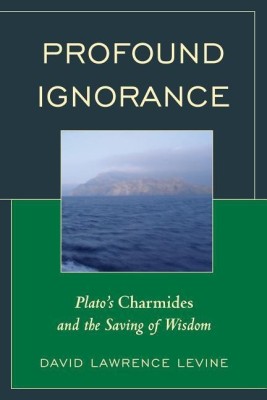Profound Ignorance(English, Paperback, Levine David Lawrence)
Quick Overview
Product Price Comparison
Returning from the battle of Potidaea, Socrates reenters the city only to find it changed, with new leadership in the making. Socrates assumes the mask of physician in order to diagnose the city's condition in the persons of the young and charismatic Charmides and his ambitious and formidable guardian Critias. Beneath the cloak of their self-presentations, Doctor Socrates discovers a profound and communicable disease: their incipient tyranny, "the greatest sickness of the soul." He thereby is able to "foresee" their future and their role in the oligarchy (The Thirty Tyrants) that overthrows the democracy at the end of the Peloponnesian War. The unusual diagnostic instrument of this physician of the city: the question of sophrosyne (customarily translated as moderation). The analysis of the soul of this popular favorite uncovers a distorted development with little prospect of self-knowledge, and that of the guardian, a profound disabling ignorance, deluded and perverted by his presumed practical wisdom. Alongside on the bench sits Socrates whose ignorance, by contrast, shows itself to be enabling, measured and prospective. In this way, the profound ignorance of the tyrant and the profound ignorance of the philosopher are made to mutually illuminate one another.In the process, Levine brings us to see Plato's extended apologia or defense of Socrates as "a teacher of tyrants" and his counter-indictment of the city for its unthinking acceptance of its leaders. Moreover, in the face of modern skepticism, we are brought to see how such "value judgments" are possible, how Plato conceives the prospects for practical judgment (phron?sis). In addition we witness the care with which Plato presents his penetrating diagnoses even amidst compromised circumstances. Levine, further, is at pains to situate the specific dialogic issues in their larger significance for the philosophic tradition. Lastly, the author's inviting style encourages the reader to think along with Socrates.The question of tyranny is always relevant. The question of our ignorance is always immediate. The conversation about sophrosyne needs to be resumed.


